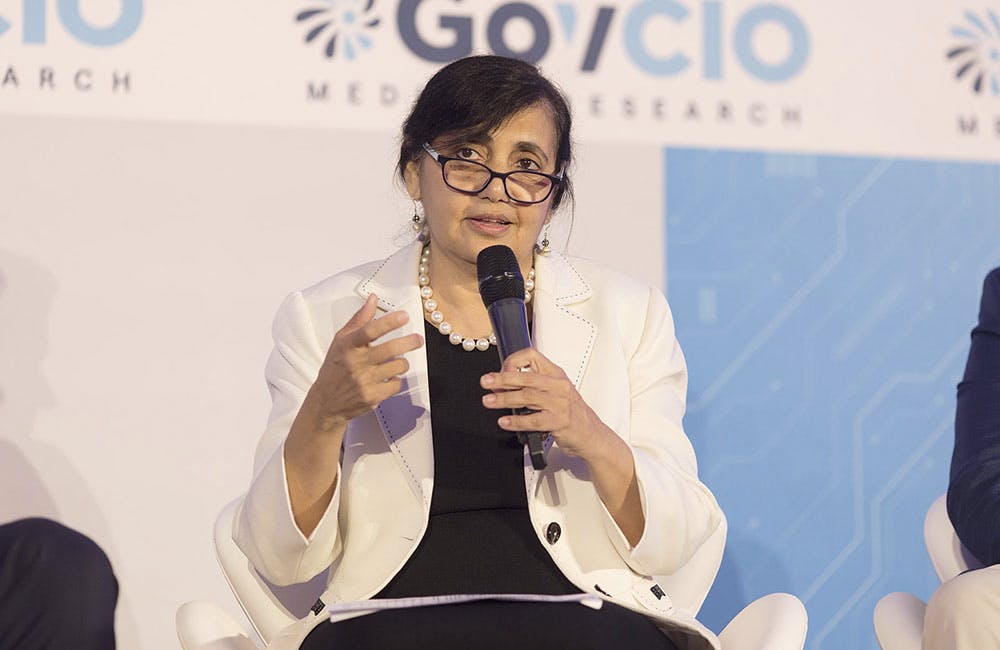VA Outlines Importance of Zero Trust as Threat Landscape Evolves
Zero trust access models are essential to maintaining robust security frameworks.

The Department of Veteran Affairs is accelerating its zero trust journey, as the White House urges federal agencies to secure IT infrastructures and improve cybersecurity.
Agencies are all grappling with how to implement various security strategies as a result of Biden’s May Executive Order on Improving the Nation’s Cybersecurity, key elements of which include zero trust. Over the past year, VA has already been developing a strategy to leverage and integrate zero trust.
“We have to start looking at the areas that we need to protect. Our boundaries are no longer clear,” said Royce Allen, director of enterprise security architecture at VA. “Our boundaries continue to expand and expand beyond that. Now, we’re in a place where we really have to collaborate without vendors so that we can protect that environment.”
The department is looking at how it can leverage zero trust to improve the ways it protects critical data in the face of evolving threats.
“The current security model in which we use for zero trust is no longer working in this world of evolving threats,” Allen said. “As we continue to bring in new technology and new advancements, our telehealth services are critical, and protecting [health] information is also critical.”
Allen outlined the agency’s two priorities as it works to integrate zero trust: protecting health services to help patients and improving supply chain to minimize exploits. VA is launching security awareness programs to provide its workforce with basic protocols and technologies to continue to improve security.
“We must focus on a practice of continuum, verifying identity, authorization and authentication about data uses and our devices,” Allen said. “That’s why we do what we do and why zero trust is critical.”
VA is leveraging DevSecOps to host security applications, which will enable the department to have greater control and awareness. VA is also bolstering its managed services to support digital experiences and solutions, as it moves toward a zero trust framework.
Zero trust requires a comprehensive data management plan, Allen said. VA’s data governance committee has been working on a strategy to identify the department’s workflows with an emphasis on data.
“I know a lot of departments and agencies have already moved toward zero trust. VA is in the planning phases. We’re developing guidelines for how we’re going to assess the readiness of our existing capabilities. We’re looking at our trust zones and finalizing our TIC 3.0 architecture because that will be the baseline for how we’re going to move forward,” Allen said.
This is a carousel with manually rotating slides. Use Next and Previous buttons to navigate or jump to a slide with the slide dots
-

NSF Wants Industry Driving Quantum Innovation
The agency is pushing for partnerships to enhance the research community as Congress weighs additional legislation.
3m read -

Modernizing Critical Infrastructure in the Face of Global Threats
Officials are expanding the latest strategies in boosting defense infrastructure, including securing satellite communications, upgrading enterprise-wide technology, optimizing data management.
20m watch -

DOD Accelerates Software Modernization with Agile DevSecOps Push
The Pentagon's software implementation plan tackles cultural hurdles and integrates security early to deliver critical capabilities faster.
6m read -

Opinion: Original Intelligence Is the Missing Piece for AI Transformation
Limitations of AI agents and development drive growing needs for workforce development and "original intelligence."
3m read -

The Next AI Wave Requires Stronger Cyber Defenses, Data Management
IT officials warn of new vulnerabilities posed by AI as agencies continue to leverage the tech to boost operational efficiency.
5m read -

Federal CIOs Push for ROI-Focused Modernization to Advance Mission Goals
CIOs focus on return on investment, data governance and application modernization to drive mission outcomes as agencies adopt new tech tools.
4m read -

Agencies Push Data-Driven Acquisition Reforms to Boost Efficiency
New initiatives aim to increase visibility of agency spending, improve data quality and create avenues to deploy solutions across government.
5m read -

Data Transparency Essential to Government Reform, Rep. Sessions Says
Co-Chair of the Congressional DOGE Caucus Rep. Pete Sessions calls for data sharing and partnerships to reduce waste and improve efficiency.
5m read -

DOD Can No Longer Assume Superiority in Digital Warfare, Officials Warn
The DOD must make concerted efforts to address cyber vulnerabilities to maintain the tactical edge, military leaders said at HammerCon 2025.
4m read -

Marine Corps Operation StormBreaker Slashes Software Delivery Timelines by 17x
New program aims to deliver critical digital capabilities to warfighters at the "speed of relevance" by overhauling traditional processes.
4m read -

DHA CDAO Spearheads Master Data Catalog to Boost Transparency
Jesus Caban plans to boost DHA's data maturity through a new master data catalog, governance frameworks and inventory of tech tools.
5m read -

IRS Makes Direct File Code Public as Lawmakers Debate Program’s Fate
The agency sees the Direct File source code as beneficial to government digital services despite what happens with it in proposed budgets.
5m read
















